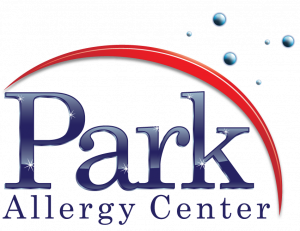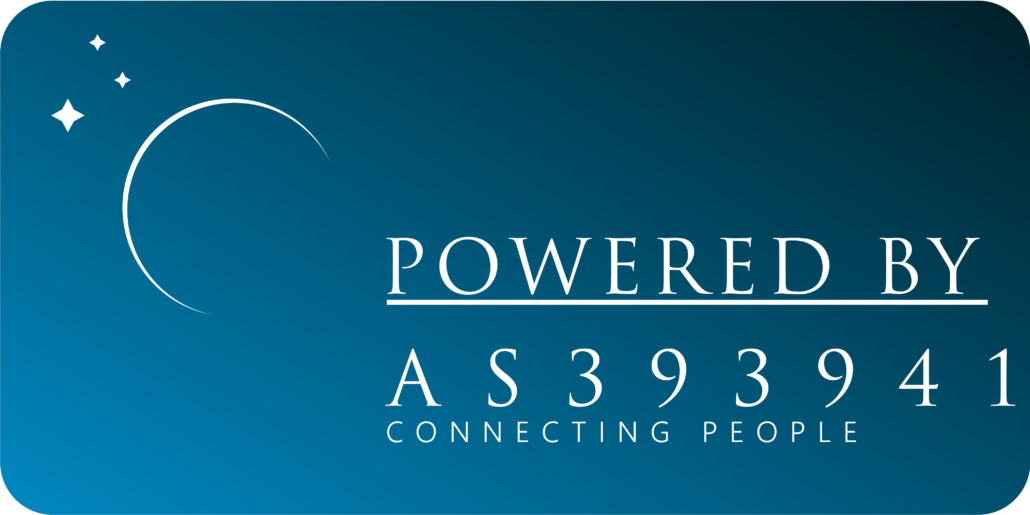Please check back with us for the latest news, announcements, and updates at Park Allergy Center! We regularly update our site with the latest allergy news and tips.
There are many different types of inhaled medications these days, ranging from the old style inhalers in a pressured canister, to powders, to mists. The following instructions pertain to old style metered dose inhalers (MDI), the traditional asthma inhaler used for the past 50 years. Before you begin, a brand new MDI should be primed by puffing 4 doses into the air, as the first several doses do not contain proper amounts of the medication. This does not have to be done before each use, just when it is new.
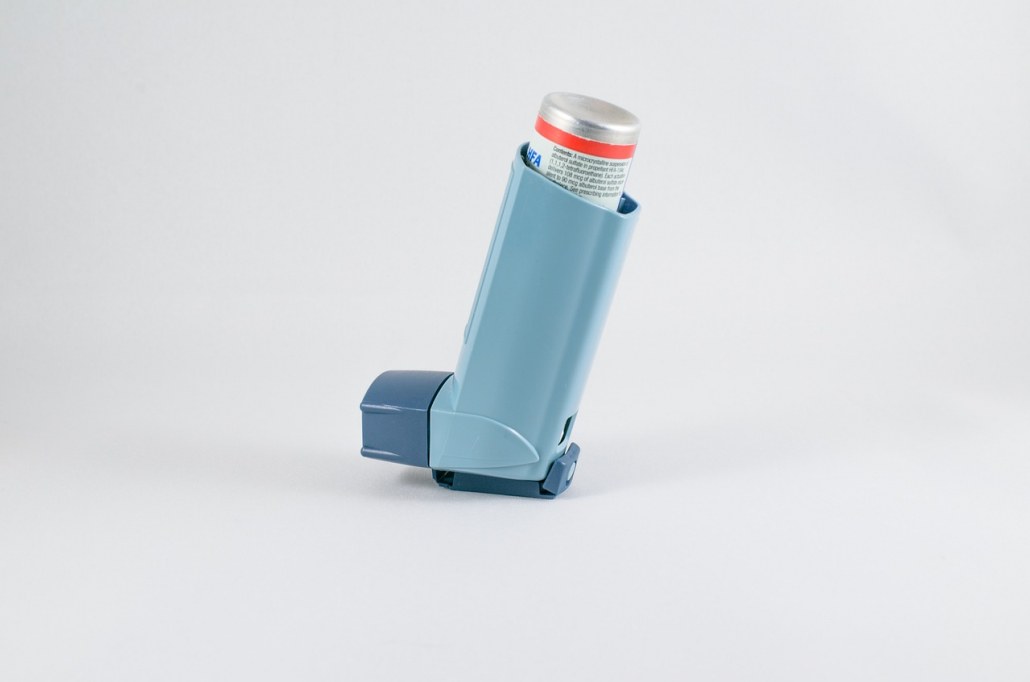
First, shake the inhaler and exhale fully.
Second, close your lips around the mouthpiece making sure your teeth do not block the way.
Third, puff the inhaler and start your inhalation at the SAME time. The inhalation should be SLOW, not fast, and should last 5 SECONDS.
Fourth, hold your breath for 10 seconds.
That’s it. You may run across minor variations to these instruction, but I have found these guidelines to be the easiest, most reliable way to teach patients how to properly use an MDI. The most common error is inhaling too quickly. A slow inhalation delivers more medication to the lungs compared to a fast one. Further, holding your breath for 10 seconds at the end is important, as this is when the medication spreads to the periphery of the lungs.
Michael Park, MD
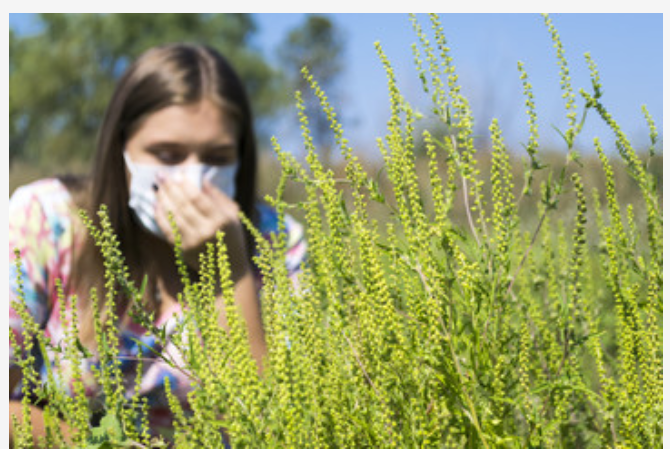
Often, people in the Midwestern United States who suffer from seasonal allergies complain of symptoms in the spring and “in the fall.” However, when asked to specify what part of the fall, they usually mean late August and all of September, not late October when the leaves are on the ground. So, it is more accurate to say “late summer” or “early fall,” when describing this second allergy season of the year. The main allergen responsible for symptoms this time of the year is ragweed. Ragweed is a common weed that grows in many parts of the North America and Central America. Although native to this continent, it has spread to Europe, probably starting in the 1900s during WWI. Unfortunately, for those of us with allergies, it is also a potent allergen.
In Southwest Michigan, ragweed starts to pollinate in mid-August, peaks around Labor Day weekend, and continues till the end of September. There is no detectable ragweed by October 1. As a potent allergen, it is responsible for most of the itchy eyes, running nose, nasal stuffiness and sneezing this time of year. Ragweed pollen levels tend to peak midday and can literally fly for hundreds of miles. So, it doesn’t matter that your yard is a perfectly manicured model of Midwestern grass. You can’t escape ragweed pollen.
Treatment for ragweed is basically the same as for most environmental allergies. The triad of avoidance, medications, and immunotherapy are the hallmark of treatment. Avoidance involves staying indoors, keeping the windows closed, and bathing every night before going to bed (you need to wash that ragweed out of your hair…). I am often asked if there is someplace one could move to avoid ragweed. The short answer is no – unless you’d like to move to Antarctica. However, spending ragweed season on an ocean or large lake (eg. Lake Michigan) shoreline can be helpful. Medications involve allergy eye drops, oral antihistamines, and allergy nasal sprays. Please refer to the previous posts detailing use of OTC allergy medications. Finally, immunotherapy, either via allergy injections or allergy oral drops, probably offers the most effective treatment available.
Michael Park, MD
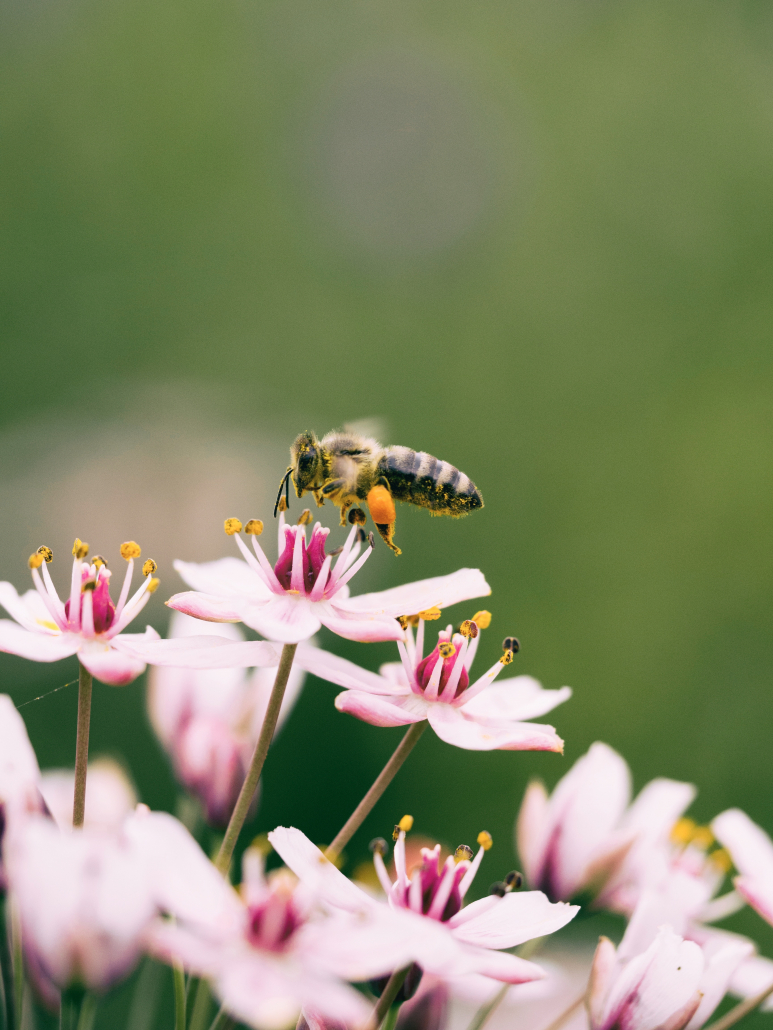
Eating local honey has been considered a natural way to treat one’s seasonal allergies for many years. The rationale is since local honey is made with the local pollens from the area, eating the honey on a regular basis will naturally desensitize you to those pollens. Sounds nice, but does this really work?
The short answer is no. First of all, honey bees do not use the pollen to make honey. It is the nectar they collect from flowers that is transformed to honey. Honey bees do collect pollen but they consume both the pollen and honey for food. The bottom line is there is virtually no pollen or plant antigen in honey.
Further, the pollen from flowers do not significantly cross react with the various trees, grass, and weeds that cause seasonal allergies. So even if honey contained pollen, it wouldn’t do much good. Even allergy injections with flower extracts will not help those with tree or ragweed allergies.
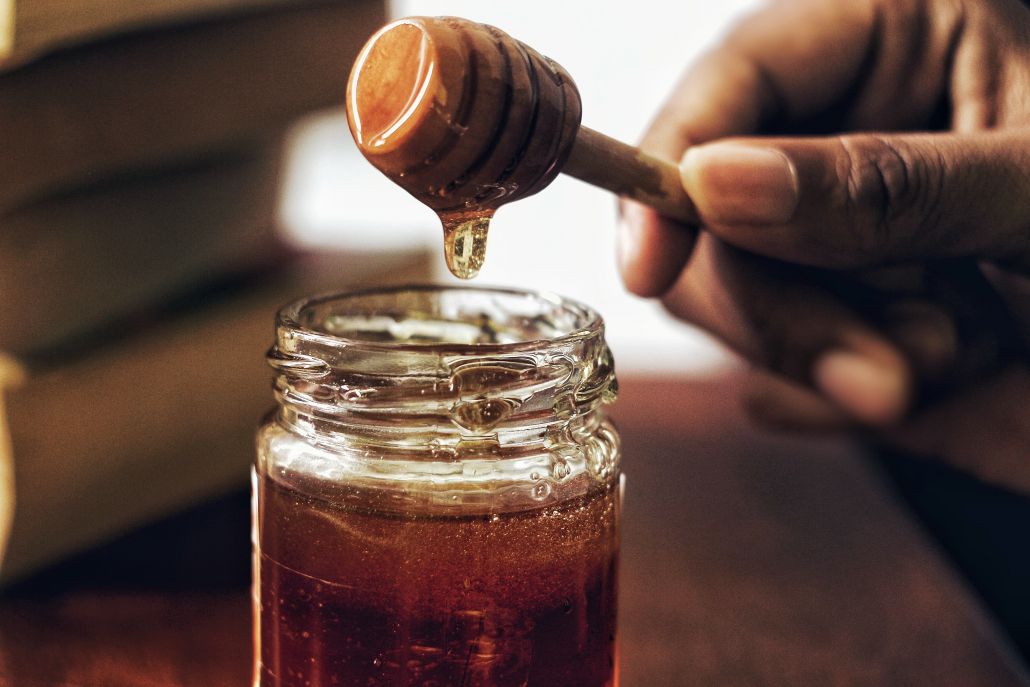
Honey is a delicious, natural sweetener, but nothing more. When it comes to treating your allergies, best to leave the bees out of it.
